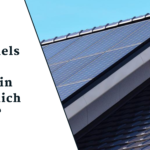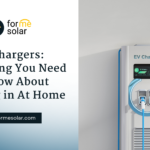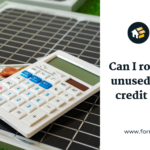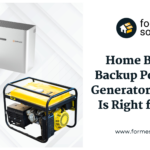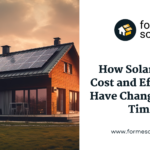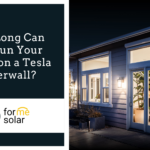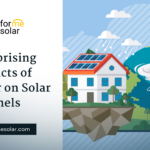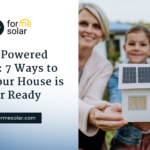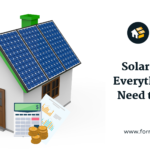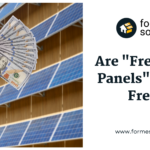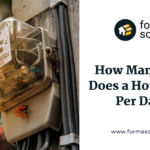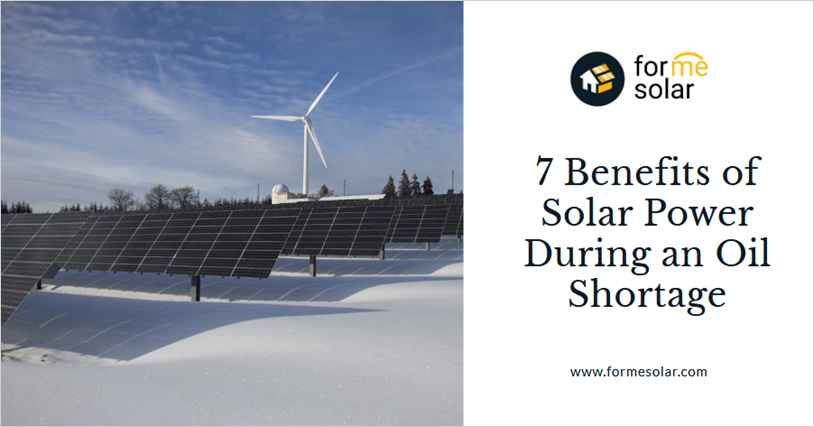
Table of Contents
7 Benefits of Solar Power During an Oil Shortage
Why Are Solar Power Beneficial During an Oil Shortage?
As the cost of power rises, global energy prices will continue to rise. This is particularly likely to happen if there are problems with the supply or affordability of fossil fuels. A lack of oil can lead global energy prices to rise, particularly the cost of power flowing via the grid.
Unfortunately, this is not likely to change in the near future. Crises affecting the supply and affordability of fossil fuels are expected to continue if not worsen. Nonetheless, you can take precautions to protect yourself against oil scarcity. Here are seven reasons to switch to solar energy when oil supplies are unreliable and costs are high.
Reduce the Impact of Oil Price Increases
When there is a shortage of oil, gas, and electricity costs go up. Natural gas, coal, and nuclear energy still account for the majority of the country's electrical production. Just 20% of electricity was generated from renewable energy sources in 2021, but that percentage is expected to increase to 24% by 2023.
You're more likely to experience the effects of an oil crisis in a home powered by alternative energy, such as a grid-tie or off-grid solar power system if your household depends on the grid to supply the majority or all of your energy demands. You may provide your family's energy needs and only use the grid when necessary with a grid-tie system. Local net metering programs might be applicable to solar energy systems installed at homes that are connected to the grid. In exchange for supplying electricity to the grid, account holders are given credits under these billing schemes.
With net metering, you can lessen your reliance on the grid and at least partially reduce the burden of obtaining electricity during an oil crisis. Confirm whether net metering is permitted by your utility provider. Battery storage can be used as a backup for a residential solar power system that is connected to the grid. Oil shortages won't have an apparent impact on your energy cost if you install an off-grid solar power system in your home.
The most expensive solar panels and battery storage are needed for this strategy. Your connection to a grid that still generates around 80% of the nation's annual electricity from fossil fuels is severed, though. If you want to switch to solar power, you might be able to take advantage of state or federal incentives.
Enjoy Sufficient Power When Fossil Fuels Are Limited
One way to limit personal consumption during an oil crisis is to meet your home's energy demands with clean, renewable energy. Increased solar energy investment by homeowners and business property owners may result in a decrease in grid demand. Fuel conservation is usually a result of oil shortages.
In order to combat a shortage, the International Energy Agency suggests ten intermediate steps, including:
- lowering the speed limit
- working three days a week from home
- Saving 2.7 million barrels of oil per day by reducing air travel
You may want to follow these recommendations if you drive a gasoline or hybrid vehicle, even if you have a grid-tied or off-grid solar power system. As of 2020, the majority of the energy used by the US transportation sector was still made up of gasoline and petroleum products.
When analyzing the effects of solar electricity during an oil crisis, perspective is important. In 2020, the residential sector used 6.54 quadrillion British thermal units of energy, while the business sector used 4.32 quads. Only 12% of the nation's total energy production in the same year came from renewable sources; the remaining 82% came from petroleum products and 36% from natural gas. The smallest share of renewable energy is produced at home and at the utility scale, but over the next few decades, this share should increase quickly.
Use Battery-powered Systems
You may rest easy knowing that your home solar power system will function during brownouts or blackouts if you invest in a battery system. Even while it is feasible to have a grid-tie system without a battery backup, doing so can be useful for times when the sun isn't shining or the grid is down.
Despite the fact that it's uncommon for oil shortages to directly result in power outages, having a battery backup is a great idea regardless of trends in the world energy market. Solar batteries contribute to the total cost of a house installation but can help greatly in the event of a protracted outage.
Battery storage makes it possible for you to meet your home's energy needs both often and in emergency situations. After the sun sets, battery solutions can keep your lights on, appliances running, and devices charged. For a battery to function for extended periods, it must be recharged. In order to decide how much battery storage to install in a system, you should analyze your energy demands first.
Become Less Dependent on the Electrical Grid
Based on the power requirements and panel generation capabilities, a home with a grid-tied solar power system is dependent on the electrical grid. During an oil crisis, using less energy from a system that is largely reliant on fossil fuels like natural gas and petroleum can reduce costs and usage. Solar energy cuts continuous consumption expenses even in times of abundant oil and cheaper fuel and energy prices.
In 2019, there were more than 2 million solar panel installations in the US. 2.5% of American households are anticipated to have solar systems by 2024.
Due to pressure from oil scarcity, this rapid growth is projected to continue over the upcoming ten years. If you wish to stop using the grid, you must get an off-grid solar home energy system.
These systems include:
- Solar Panels
- Battery energy storage
- Inverters
- Other tools to power your house without relying on any local power grids
For complete energy independence, these installations need the most equipment and a substantial upfront expenditure.
Offset Usage on a Grid-Tie System with Metering
Knowing you can rely on the grid to supply power can give you peace of mind. If the price of an off-grid system puts you off, a grid-tie system can lower your expenses by cutting the number of panels you require and getting rid of batteries. Depending on your location, you could also be able to sign up for a net metering scheme with your utility provider.
With net metering, some solar customers can send between 20% and 40% of their system's production to the grid and receive credits for the electricity they use at night or when their household's needs exceed the output of their solar energy system. By reselling excess power when it becomes available, you can reduce your electricity costs even when there is a lack of oil.
Net metering has been approved in at least 17 states. You still have the choice to install a grid-tie system with battery backup if you reside in a state without net metering. Off-grid systems cannot draw electricity if their batteries run out of charge or their solar system breaks down because they are not connected to the utility power grid. Total reliance on fossil fuels means you won't have a reliable utility to turn to if you need more power.
Charge Devices and an Electric Vehicle
Driving an electric car that you charge with sustainable energy produced by your home solar energy system can significantly lessen your reliance on oil.
For many years, the only options available to Americans were driving gas-powered cars and connecting to polluting electrical grids. Although grid electricity and these vehicles often cost less than a home solar power system and an electric vehicle, both of their operational costs change when there is a lack of oil.
You should be prepared to make some major upfront investments if you want to lessen your reliance on oil. Compared to the industry average, the average cost of an electric vehicle is around $10,000 greater.
Depending on which of the following you choose, the price of installing solar energy for homes can vary:
- Grid-tie
- Grid-tie and energy storage combined
- solar installation off the grid
As capacity has improved, the price of solar equipment and panels has decreased. In addition, electric cars are getting more affordable. Prices are projected to drop as household solar energy systems and electric vehicles gain popularity. It may be wise to make both short-term and long-term investments in residential electricity and transportation systems to protect against oil shortages.
Get a Renewable Source of Energy
It's just recently become possible to produce your own electricity, let alone store excess energy for later use.
Although residential solar installations first appeared in the US in the 1980s, it has only recently become feasible to provide for the demands of a modern home at a cost that is justified by energy savings.
Due to the requirement for larger battery storage, a totally off-grid system will be significantly more expensive than a grid-tie system. If you want to power a home in an area without utility service or if you want to be independent from the grid, this investment can be worthwhile. In the event that the solar panels are not producing electricity and no backup battery capacity is available, off-grid systems do not offer the option of net-metering or using the grid as a source of power.
A grid-tie or off-grid solar system is one of the wisest decisions you can make if you want to take action to lessen the financial impact of a global oil crisis. If you drive a hybrid or gas-powered car, working from home more frequently during the week or driving an electric car can help you use less oil. It's important to keep in mind that during times of oil shortages, any fixtures or appliances in your home that use natural gas will be more expensive.
Why Use Solar?
Solar energy technology has become much more affordable over time. Since 1976, the price of solar panels has decreased by an average of 20.2% for every doubling of solar capacity. The price of solar technology has decreased by more than 90% over the past ten years, according to statistics from Lazard's Levelized Cost of Energy Analysis. Onshore utility-scale solar has consequently emerged as the most cost-effective electricity source to install and run.
The price of residential solar power systems has also decreased, which is good news for homeowners. During an oil crisis, energy futures move significantly, but consumer costs often increase. The greatest way to safeguard your family is to invest in a sustainable energy source.
Although purchasing solar energy equipment requires a big initial investment, the savings on power bills, federal and state tax credits and other advantages can add up over time.
Solar power can:
- Reduce your reliance on fossil fuels for energy.
- reduction of carbon footprint
- During a lack of oil, provide protection from uncertain energy prices.
Solar energy is a great way to kick-start your home's energy independence. With the help of Forme Solar, you can get solar panels installed and start saving money instantly.
Whether you live in Orange County or Los Angeles, we can help you get started on your path to sustainability. Contact us today for more information about how Forme Solar can help you get started on your journey toward solar energy independence!

